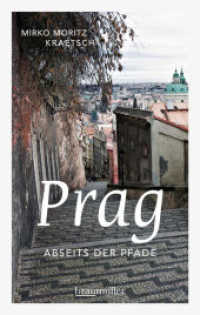- ホーム
- > 洋書
- > 英文書
- > Religion / Ethics
Full Description
"Doing" theology ought to be deep, creative, and awe-inspiring. Big theological questions should be asked in the most genuinely helpful manner. Often, and inevitably from a human perspective, we ask questions such as "Why doesn't God...?" or "Why does God allow...?" or, perhaps more appropriately, "What is the best way to conceive of God through His engagement with creation?"
In Real Divine Insight and Human Consciousness, Andrew Bigg considers the logical and eschatological consequences of the pivotal union of "perspectives" in the Christian concept of Incarnation. The systematic approach proceeds as "according to a whole," or both theologically and scientifically relevant.
We are aware, not least through Biblical texts, that there is a divine viewpoint of creation. The Bible says, "For my thoughts are not your thoughts, nor are your ways my ways...For as the heavens are higher than the earth, so are my ways higher than your ways and my thoughts than your thoughts" (Isaiah 55:8-9). Furthermore, "the Lord does not see as mortals see" (1 Samuel 16:7), and we even hear the charge "you thought that I was one just like yourself" (Psalm 50:21).
Humanity, however, asks questions about God's "perspective," while God asks rhetorical questions about human perspectives. In the Incarnation, however, these conflicting perspectives are somehow established in union with one another. From this divine-human perspective, Christ asks His disciples the incisive opening question "What are you looking for?," followed by the invitation "come and see" (John 1:37-39). Engaging theologically, learning what best to ask and how best to ask it, is inseparable from a journey of formation, preparation, and growth towards that ultimately shared self-knowledge to which Christ's invitation directs us, pointing towards a nuanced way of "seeing" and, eventually, "seeing together."







